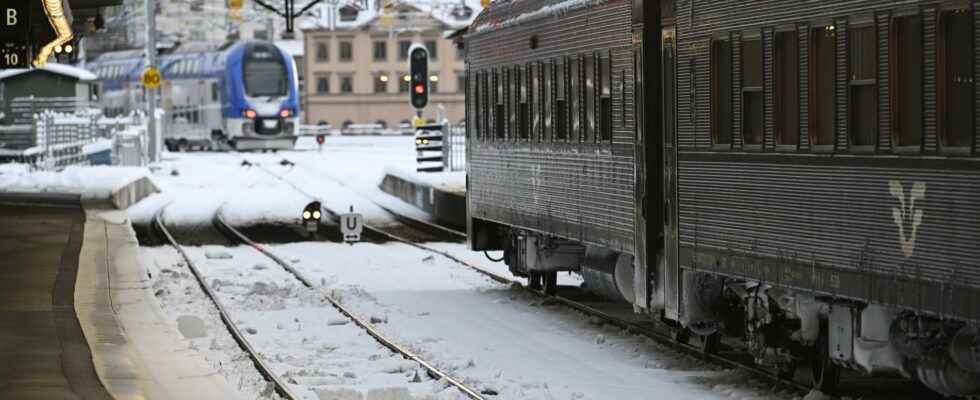Published: Just now
A new planning system and illness among the staff are putting pressure on SJ ahead of this year’s big travel weekend. Now there is concern about problems in the Christmas traffic.
– Right now it looks like it’s working, but it’s fragile, says SJ’s press manager Tobbe Lundell.
Christmas is one of the biggest travel holidays of the year for the train companies – and the first since the Swedish Transport Agency’s digital planning system was put into use on 11 December.
According to SJ’s press manager Tobbe Lundell, travelers are not affected at the moment, but behind the scenes the company’s IT employees and traffic management are working hard to deal with the technical errors that have been discovered since the system change.
– It requires a lot of resources, so our traffic management is starting to wear out. Right now it seems to work, but it’s fragile. We are worried about other major disruptions, i.e. some external influence that will require resources, because then we think that there may be disruptions when there is intense traffic, says Tobbe Lundell.
Some examples of unforeseen events that could cause it this Christmas are a change in weather or a downed power line.
– We have already seen that if, for example, trains need to be rerouted due to an incident, the Swedish Transport Administration has huge problems after its system change with issuing new train numbers. It takes a very long time for them and it can have a very large negative impact, says Tobbe Lundell.
Jumps in on days off
But it is not only the system change that is pressing before Christmas – but also the strained illness situation among the staff. In order to cope with the Christmas traffic, SJ employees need to work overtime and the company has offered more pay to try to bring in extra staff, Olle Blomberg, chief safety representative at SJ, told the newspaper Arbetet.
Despite high sick leave numbers, however, Tobbe Lundell takes a positive view of the situation.
– We have many people who come in and work on days off and we also have hourly employees that we put in. It looks good, we are not quite finished but our human resources function is working on calling people in, so there is still work going on to fill all the vacancies, he says.
“Keep an eye on the situation”
Last year, SJ canceled around 30 departures per day during the Christmas week as a result of illness among the staff and previous schedule confusion. But this year, travelers can so far breathe a sigh of relief – at the time of writing there is no information about canceled trains.
– Last year, we had launched a completely new planning system, which put a damper on the wheel for us. We had no control over the situation and had many duty schedules that were very inefficient. We swam in mud to correct the situation day by day. Today, we have a completely different situation when we have control of the situation, says Tobbe Lundell.
However, as a result of a shortage of locomotive drivers, both SJ and MTR have been forced to reduce traffic during the year as well as in the new timetables from 11 December.
– We have fundamentally adapted our range. What we are really working for is that we will run all the departures we have sold tickets for. We also work intensively with new recruitment, our own train driver training and a series of measures, but these are things that only have an effect in the long term.
Facts
The Swedish Transport Administration’s new planning system
The Swedish Transport Administration’s new digital system is called MPK (market-oriented planning and capacity) and was introduced on the night of December 11.
The new system should provide more efficient planning and use of the railway and make it easier for the train operators to apply for train positions and track works. The Swedish Transport Administration has described the change as completely necessary and a paradigm shift.
Even before the system was introduced, the train operators’ trade association Tågföretagen, among others, raised a warning flag that it had not been sufficiently tested.
On December 17, SVT reported that over 400 errors have been reported since the system was put into use, which has led to the staff receiving new instructions for how to work before each shift.
In connection with this, the chairman of the trade union Seko, Charlotte Olsson, told Dagens Nyheter that several hundred people have expressed their concern after the system change, which has led to increased stress for the staff.
Read more
